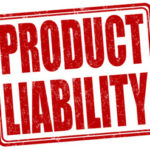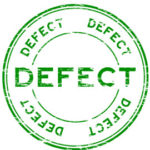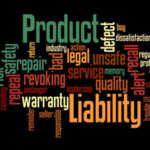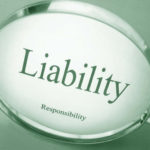Category Archives: Products Liability

How Long Do I Have to File a Product Liability Claim in Tennessee?
Product liability claims in Tennessee are subject to certain time limits. Specifically, Tennessee law states that a person who is harmed due to a defective product must bring a lawsuit within 1 year of the date of injury. This is known as the statute of limitations. But there is also a second deadline, known… Read More »

Jury Orders C.F. Bard to Pay $3.6 Million in IVC Filter Case
There are currently thousands of defective medical device lawsuits pending against C.R. Bard, Inc., the New Jersey-based manufacturer of IVC filters. An IVC filter is supposed to “catch” blood clots in the body before they travel up a person’s inferior vena cava and cause a potentially fatal pulmonary embolism. However, many patients have suffered… Read More »

TN Hospital Not Liable for Defective Door That Injured 71-Year-Old Patient
When you walk into any kind of public facility, such as a store or even a government office, you have the right to expect the premises are in a reasonably safe condition. Legally speaking, a premises owner is not necessarily responsible for every customer who is injured, but there may be liability if there… Read More »

Judge Schedules “Bellwether” IVC Filter Case for Trial in March 2018
There are currently over 3,000 product liability lawsuits pending against the manufacturers of inferior vena cava (IVC) filters. IVC filters are metallic devices used to prevent blood clots from traveling from the lower body to the heart and lungs, i.e. causing a pulmonary embolism. While IVC filters were originally designed as permanent implants, the… Read More »

When Is a Parts Manufacturer Responsible for a Fatal Injury in Tennessee?
Product liability lawsuits are often complex undertakings because they can involve multiple manufacturers. In a motor vehicle or industrial machine there can be hundreds–and potentially thousands–of individual parts. And even when you identify the individual part that is responsible for a personal injury, that does not automatically make the manufacturer liable as a matter… Read More »

California Jury Orders Talcum Powder Manufacturer to Pay $417 Million to Ovarian Cancer Patient
Although Johnson & Johnson, the world’s largest manufacturer of talcum powder, still denies there is any link between its products and ovarian cancer, juries throughout the United States continue to side with victims and their families. On August 22, a Los Angeles jury ordered Johnson & Johnson to pay over $400 million in damages… Read More »

Is a Property Owner Liable for a Malfunctioning Automatic Door?
In personal injury claims brought against property owners, a plaintiff must prove the existence of a “dangerous or defective condition” that caused their injury. The condition itself must have been caused or created by the property owner, or the owner must have had actual or constructive notice of the condition. In this context, “constructive”… Read More »

Improperly Maintained Home Medical Equipment Can Be Fatal
Many Tennessee residents require ongoing, in-home medical care. When companies assume the responsibility of providing medical equipment for such patients, they are subject to the same negligence and product liability laws as any other manufacturer or distributor. Among other things, this means the company must ensure the equipment is setup properly and that patients… Read More »

Supreme Court Decision Jeopardizes Talcum Powder Lawsuits
In recent years, a growing body of evidence and court rulings have confirmed a link between the chronic use of talc-containing products, notably baby powder, and ovarian cancer. Johnson & Johnson, the main U.S. supplier of talcum powder, has already faced several jury verdicts ordering it to pay millions of dollars in damages to… Read More »

How Your Car’s Software Can Cause Serious Injury (or Death)
As motor vehicles become more dependent on computer systems, drivers and passengers are increasingly at risk from software problems that may cause a critical system to fail. No computer system or program is perfect, but when car manufacturers fail to promptly identify and correct their software errors, the results can be deadly. A defective… Read More »











